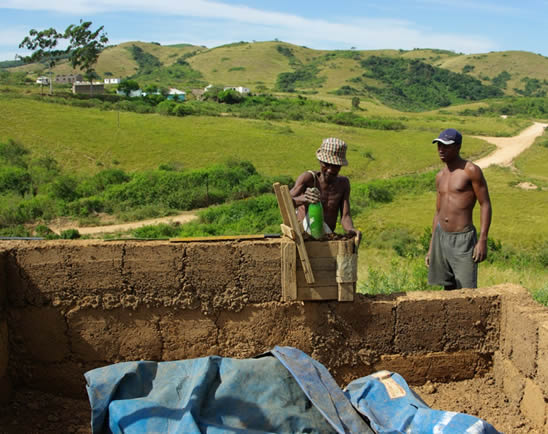 |
Omurhabana ye cinamula ezagwire. (Havu) Muvulana ndiye husimamisha nyumba zilizoanguka. (Swahili) C’est le garçon qui relève les maisons détruites (en ruines). (French) It is the boy who lifts up the fallen houses (ruins). (English) |
Havu (Democratic Republic of Congo — DRC) Proverb
Background, Explanation, History, Meaning and Everyday Use
The Havu language or Kihavu is a tonal Bantu language spoken by the Bahavu people currently living on the island of Idjwi located in the midst of the Lake Kivu between Rwanda and the eastern part of the Democratic Republic of Congo (DRC) in South – Kivu Province. Historically a clan-based society, Idjwi Island became a kingdom in the late 18th century (roughly between 1780 and 1840) under the influence of the neighboring Kingdom of Rwanda. People from Bushi and Rwanda came and settled on the island for agricultural and fishing purposes. The Basibula royal dynasty organized administratively the island and imposed their rituals from Nyabihunge.
The different attacks of immigrants for settlement in Idjwi left behind them ruins and disaster. Each community had to rebuild villages burnt by assailants, and this was only a job for the boys and men. This made them socialize among themselves. To build an entirely destroyed village required strong men, determined to defend it after being restored and of continuing to protect the community and raise new members. Traditionally a family that had no boy was considered nonexistent. It could disappear any time because there was no one to raise it up when in trouble. Traditionally a woman who gave birth to girls was considered as barren because there was no contribution from her when rebuilding village houses or defending the integrity of their village. If her own house fell down, there was no one to rebuild it. Traditionally men were considered the builders and the only ones who could raise up the fallen societies. This has changed over the years.
Biblical Parallels
“Then I said to them, you see the evil that we are in, how Jerusalem is wasted, and its gates are burned with fire. Come and let us build up the wall of Jerusalem, so that we may no longer be a reproach. Then I told them of the hand of my Elohim which was good on me, and also the king’s words that he had spoken to me. And they said, Let us rise up and build. So they made their hands strong for good” (Nehemiah 2:17-18).
“And I sent messengers to them, saying, I am doing a great work, and I cannot come down. Why should the work cease while I leave it and come down to you?” (Nehemiah 6:3).
“Then I answered them and said to them, The Elohim of Heaven, He will prosper us, and we, His servants, will arise and build. But you have no portion or right or memorial in Jerusalem” (Nehemiah 2:20).
Contemporary Use and Religious Application
Many African countries today are confronted with poisonous plagues that have destroyed societies such as corruption, tribalism, favoritism, despotism, even regionalism. These societies have their medication in consecrated men and women (a change from the Havu society). Because of being anointed by God they are respected and obeyed. They are builders of societies destroyed by these vermin that gnaw at them because of their weeping and praying night and day for the rising of consciousness. If we can follow the example of Nehemiah who sat down and wept, mourned, fasted and prayed because of the destruction of Jerusalem and raised the consciousness of the people to rebuild their city, these diseases of corruption, negative ethnicity and favoritism can be far away from our societies.
These consecrated persons have changed many things in this world. They have built schools for alphabetizing rural people, hospitals, universities, churches, brought clean water and many other realizations for lifting up the lives of communities in awakening the consciousness of young people.
Placide Hondi Muhimanyi
Nairobi, Kenya
Cellphone: 0701-408731
E-mail: hondimuhimanyi@gmail.com
Photograph provided by:
Professor Cephas Yao Agbemenu
Department of Fine Arts
Kenyatta University
P.O. Box 43844
Nairobi, Kenya
Cellphone: 0723-307992
Email: cyagbemenu@yahoo.com

